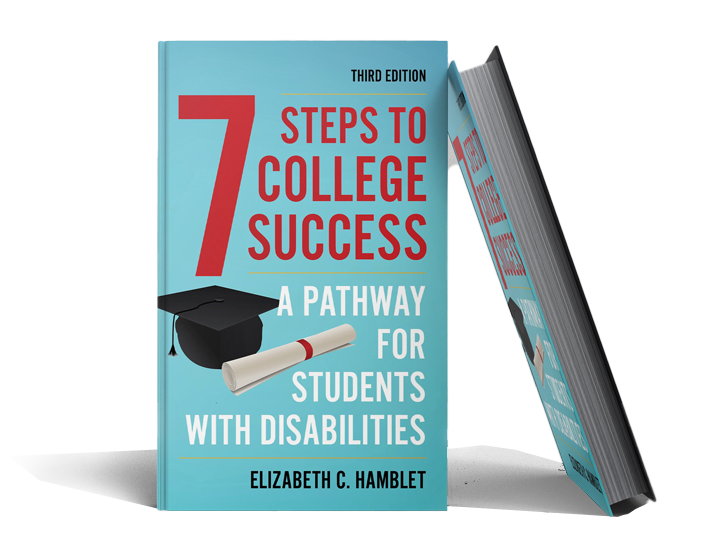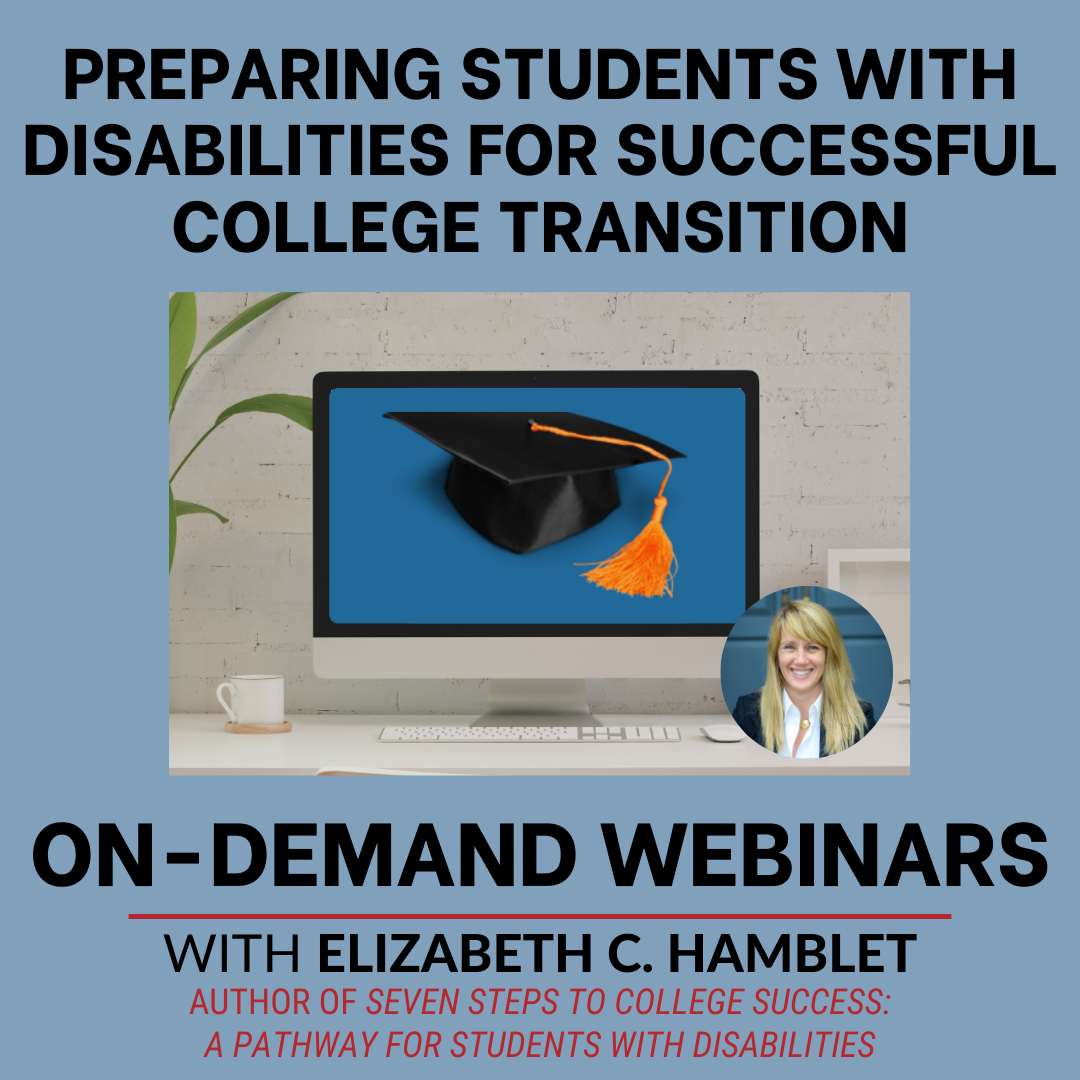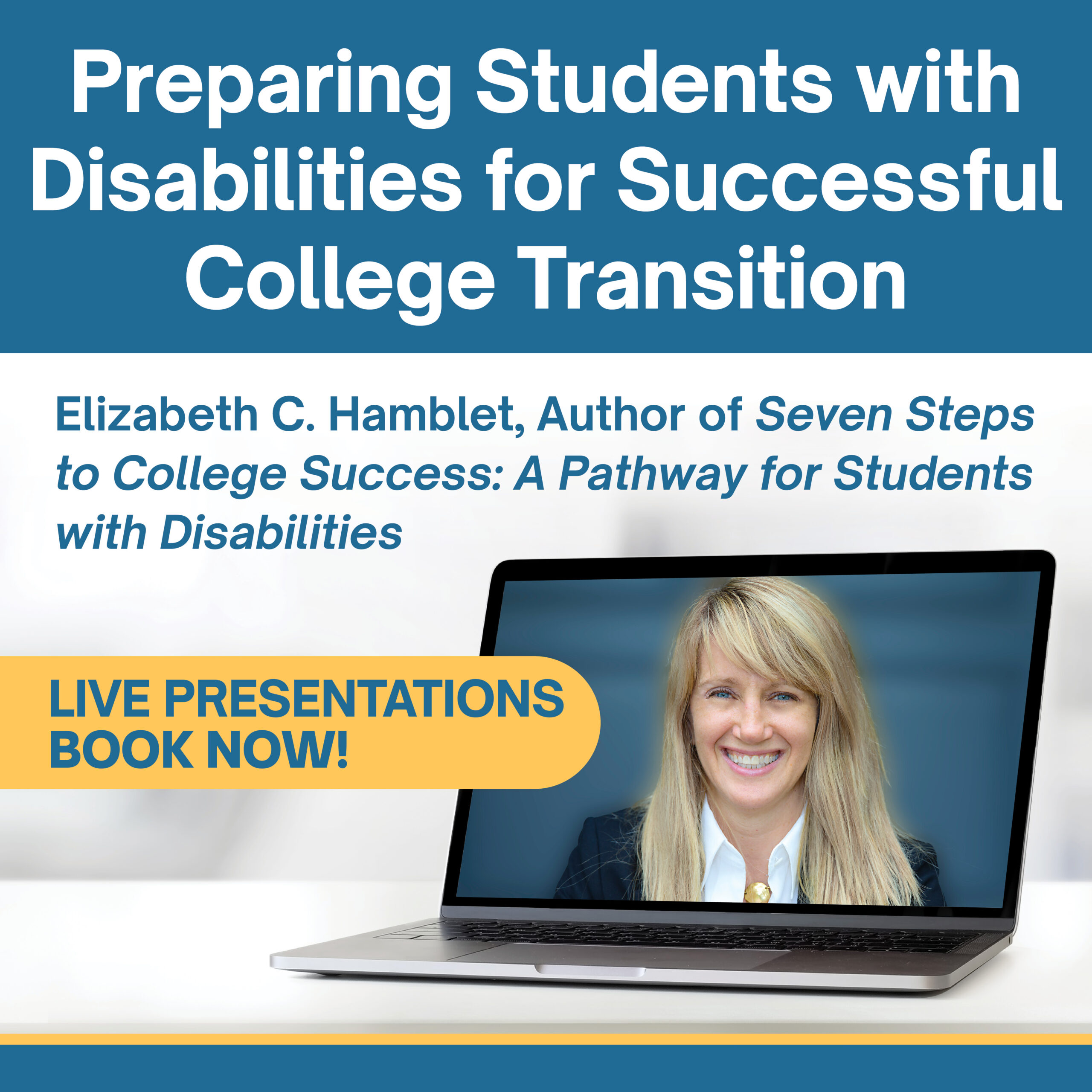Introduction
Within the general population of high school seniors, there are students who may not be ready to begin college right away but who feel the pressure to conform to the traditional timeline. (Their parents may feel this, too.) When assessing readiness for students with learning disabilities and ADHD, it is important to consider whether they have learned the skills they need to cope with the academic demands (without many of the supports they may have been used to in high school), and whether they are developmentally ready.
When I wrote my second book, I interviewed writer Rae Jacobson (who has ADHD and learning disabilities). In this post, she discusses why she started college right away, even though she knew she wasn’t ready, and how she responded when things did not go well.
Jacobson shared this story to help everyone involved in students’ preparation for college to recognize what students might be thinking and what can happen when they’re not ready. (Don’t worry – it has a happy ending.)
A rough start
As I quickly discovered [when I started college], the school I picked wasn’t a good fit for me. I was from New York City and the town in which the school is located is really small. As often happens to people, my roommate and I were not a good match.
And worst of all, my naïve vision of college was a bust. Far from the free-form intellectual wonderland of my imagination, it turned out that college was really just a bigger, costlier version of my first high school with massive classes, dull requirements, and even less oversight.
I was completely in charge of myself. No one was going to make me get up and go to class. No caring teachers would ask how I was doing or provide support. Everything from waking up, to going to class, to doing my homework was my choice, and I wasn’t really ready for that. I was depressed and frustrated. I had no idea how to handle my learning disability, and even if I’d known where to go for help I didn’t have the vocabulary to advocate for my needs.
I knew that I was in the wrong, place, but instead of transferring, I clung to my one win – I had gotten in. And I was staying. I did things that made me happy, like working at the campus nightclub and a local record store.
What I didn’t do was go to class. One of the mandatory courses was a “get to know the college” kind of class where you learned about the history of school, the town, etc. I could not have been less interested, and (to add insult to injury) the class was at 8:00 A.M. I didn’t go and – obviously – failed the course. I told myself that it “didn’t count.” I attended other classes sparingly, picking and choosing those I enjoyed, hiding from the ones I didn’t.
New semester, no change
Not surprisingly, I was put on probation the next semester, but I still clung on. I actually argued with my advisor that it was important for me to be there. I just didn’t want to be a failure – again.
But nothing had changed, I still lacked the skills I needed and when the second semester started, I went to school for a week before I just gave up and fell back into my old habits again. I managed to fumble along until the end of the year before even I had to admit there was no point in staying anymore.
I returned to New York and took a job I didn’t enjoy. If that wasn’t bad enough, my ambivalence combined with my learning disability meant I was constantly in trouble. At that point in my life, I imagined that my entire future was going to be like this – working a job I didn’t enjoy, getting yelled at, and living in a crummy apartment. I didn’t see a way out and I was too depressed to put much effort into finding one.
New school, same lack of self-knowledge
Seeing how miserable I was, my parents pressed me to give college one more shot. I think they were hoping that being back in the city would help me do well this time around. I studied for a semester at Marymount College. [Author note – Marymount has a special program for students with learning disabilities,but Jacobson did not utilize it.]
But it didn’t take long for me to start slipping. I still didn’t understand my learning disability, my self-esteem was nonexistent, and I completely lacked the skills I needed to do well. I felt horrible. I was tired of wasting time and money on what seemed to me like a lost cause.
In a way, I was trying to “quit” before I could be “fired” from college. All my life, people had told me how smart I was, and I held onto that like a talisman – sure, I was failing, but at least I was smart! At some point, giving up became self-protective. If I avoided doing things that were difficult for me, it was easier to keep holding on to my beacon of hope: I’m smart. But failure after failure had begun to chip away at me.
How the turnaround happened
Adults had always praised my intelligence, but without the skills to back it up, I was totally unable to succeed. If being smart is all you’ve got but you can’t succeed in school, it becomes harder and harder to believe it.</strong> I knew in my heart that I wasn’t lazy; I just couldn’t figure out how to do what I needed to do.
After a year of bad jobs and feeling terrible, my mother convinced me to give school one more shot, and I agreed to look at Landmark College. [Author note – Landmark is a college that only students with learning disabilities, ADHD, and autism.]
I wasn’t very interested, but I agreed to visit. It took only thirty minutes at Landmark to change my mind. I listened to a panel of students who talked about their academic experiences. It was like hearing someone describe my life. “I was always the best learner and the worst student,” said one. “Now I know how to be both.” At the end of the panel, I looked at my mom and said, “I think I have to do this.”
Studying at Landmark was a huge turning point. Having a little success really changed things for me, as did being around other students who learned differently. It felt like we were all in it together. I was surrounded by people who I respected, who were cool and smart and whose struggles were so much like my own. I made great friends and began regaining a little of my confidence. [Author note – Jacobson successfully transferred from Landmark (which only offered two-year degrees at the time) to Lesley College, where she completed her undergraduate degree. She later went on to earn a master’s degree.]




